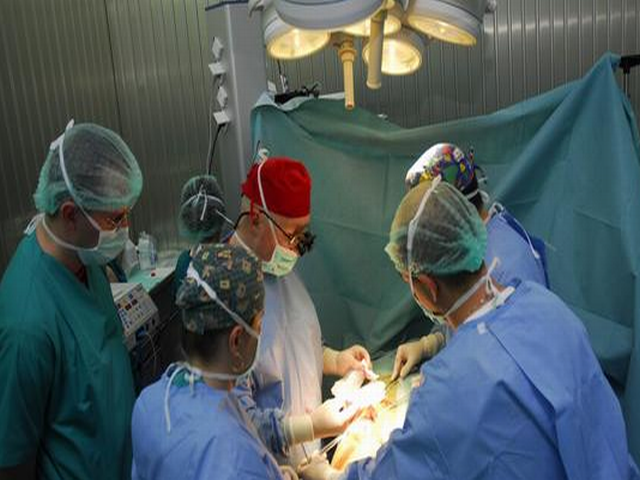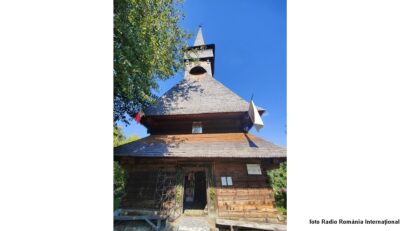Organ transplantation in Romania
After the creation of the National Transplantation Agency ten years ago, the number of organ and tissue transplants in Romania has grown by 25-30% a year.

România Internațional, 27.08.2014, 00:53
400 transplants were carried out last year alone, including 275 kidney, 122 liver and a heart transplant. The liver transplant seems to be the most difficult of all transplants. Most of these organs come from brain-dead people, but in some cases the donor can be a family member. Over 400 people are on the waiting list for a liver transplant and last year saw the highest number of donors, which made possible the largest number of transplants.
Irinel Popescu, the head of the Hepatic Transplant and Surgery Centre with the Fundeni Hospital and the man who performed the first hepatic transplant in Romania, explains:
“2013 was a very special year in terms of donors, it was more of a leap rather than a progressive evolution. The number of hepatic transplants went from 75 in 2012 to 122 in 2013, which is absolutely remarkable. We’d like to have the same number of transplants this year as well. We’ve so far performed 41 hepatic transplants here at Fundeni Hospital and hope to equal or even slightly exceed last year’s figures. Another accomplishment is the opening of a second transplant centre at St. Mary’s Hospital, and they have already performed three operations there. At the same time we were pleased to help our colleagues in Chisinau, the Republic of Moldova, with livers coming from live donors or from brain-dead patients. I’d like to introduce to Romania other types of transplant. No lung or small intestine transplants have been performed in Romania so far and I hope these will become possible in the future as well.”
Almost two million Romanians are suffering from hepatitis, which, if not treated, can lead to cirrhosis and hepatic cancer. The first successful hepatic transplants were performed at the Fundeni Hospital in Bucharest in 2000.
“I was suffering from cirrhosis and needed a transplant, but no successful hepatic transplants had been performed in Romania before. But in March 2000 I was operated on by doctor Popescu and now 14 years on from my operation I feel very good, no more health problems.”
“I am 64 years old and feel good without any health problems. I was also suffering from cirrhosis, a terminal illness. I got in touch with the transplant centre in Bucharest. I didn’t know at that time I could get a transplant in Romania and I was considering a trip abroad. However, professor Popescu assured me that Romania offered transplant conditions like any other country. There weren’t many on the waiting list at that time, but there were no donors either. They eventually got a donor, called me and I got the operation.”
After a break of more than two years, heart transplants have resumed in Targu Mures, western Romania, and at the Floreasca Emergency Hospital in Bucharest. Since the first heart transplant in Romania in 1999, the doctors in Targu Mures have managed to perform an average of 10 transplants per year.
At present more than 3,600 people are on the waiting lists for various transplants, while the money allotted for these types of surgery only amounts to a fifth of the needed funds. A new budget adjustment is expected this summer in the healthcare sector, but doctors argue that the personnel involved in organ transplantation are still underpaid. Here is professor Mihai Lucan, PhD, head of the kidney transplant centre in Cluj with more on this issue:
“Romania has made huge steps in this direction although we are geographically positioned in an area where we need to approach the issue in a different manner. Last year we saw huge progress in this field as we had a higher rate of donations from people who were brain-dead, which even exceeded the rate recorded in more developed countries. There is still room for improvement, we can do it better and we can do more. “
The Transplant and Urology Centre in Cluj, western Romania, started pancreas transplantation in 2006 and the doctors here have so far succeeded in transplanting 11 organs. Mihai Lucan explains:
“We didn’t quite start off on the right foot as this is a very sensitive area where a lot of complications are likely to appear. We even had to perform post-operative surgery in almost all of the 11 cases, all of which were successful in the end. This year we have benefited from assistance from our colleagues in Italy and Austria and have obtained spectacular results. We perform double transplant, kidney and pancreas, and we have 30 patients on the waiting list.”
At present Romania has 40 organ harvesting centres and there are about 20 to 25 donors per one million people in Europe every year. There are countries like Spain where there are 40 donors but Romania is far behind with 4 donors per one million people. In order to be among the countries with a high number of transplants we should have 300 donors a year, and that’s very difficult with only one liver transplant centre in Fundeni, three kidney transplant centres in Bucharest, Cluj Napoca and Iasi and two centres specialising in heart transplant in Targu-Mures.






























